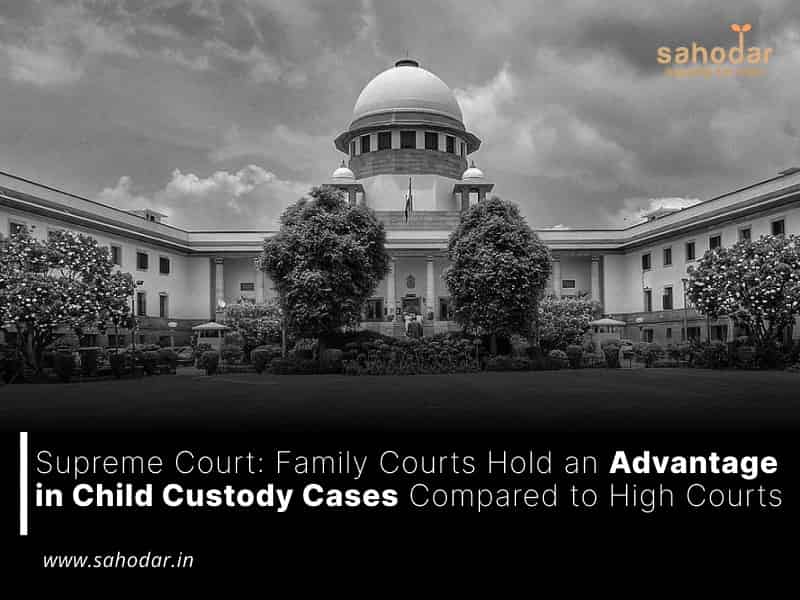The Supreme Court noted that Civil or Family Courts handling child custody cases have a more advantageous position than High Courts.
The Court overturned the Madhya Pradesh High Court’s order that “disrupted” the custody of a two-year-old child by exercising its discretion under Article 226 of the Constitution. The High Court had issued a writ of Habeas Corpus, instructing the mother’s family (appellants) to transfer custody of the child to the father and his family (respondents).
A Bench of Justice Abhay S. Oka and Justice Augustine George Masih observed, “Regular Civil/Family Court dealing with child custody cases is in an advantageous position. The Court can frequently interact with the child. Practically, all Family Courts have a child centre/play area…If an access is required to be given to one of the parties to meet the child, the Civil Court or Family Court is in a better position to monitor the same.“
Senior Advocate Gagan Gupta represented the appellants, while AOR Pashupathi Nath Razdan appeared for the respondents.
Tragically, the child’s mother died under suspicious circumstances, allegedly by hanging. After her death, the child’s father and his parents sought custody, which the High Court granted, ruling that the appellants had wrongfully taken custody of the child. The appellants challenged this decision in the Supreme Court, arguing that the High Court had not adequately considered the welfare of the minor child, who was only 11 months old at the time of the High Court’s order.
The Supreme Court clarified that even if a High Court, in a Habeas Corpus petition, finds that the respondents’ custody of the child was unlawful, it may choose not to exercise its jurisdiction under Article 226 of the Constitution if it believes that doing so would not be in the best interests and welfare of the minor.
The Court noted that when addressing Habeas Corpus petitions related to the custody of a minor, courts cannot treat the child as mere property and transfer custody without considering the potential impact such a disruption may have on the child.
“As far as the decision regarding custody of the minor children is concerned, the only paramount consideration is the welfare of the minor. The parties’ rights cannot be allowed to override the child’s welfare. This principle also applies to a petition seeking Habeas Corpus concerning a minor,” the Bench explained.
The Court noted that the High Court did not deal with and consider the issue of the welfare of the child. “The High Court has disturbed the child’s custody based only on the father’s right as a natural guardian,” the Bench stated.
“The child has not seen the father and grandparents for over a year. At the tender age of two years and seven months, if custody of the child is immediately transferred to the father and grandparents, the child will become miserable as the child has not met them for a considerably long time,” the Court remarked.
Consequently, the Court directed the appellants to give access to the father and paternal grandparents of the child to meet the child once a fortnight and remarked, “When the Court deals with the issue of Habeas Corpus regarding a minor, the Court cannot treat the child as a movable property and transfer custody without even considering the impact of the disturbance of the custody on the child. Such issues cannot be decided mechanically. The Court has to act based on humanitarian considerations. After all, the Court cannot ignore the doctrine of parens patriae.”

